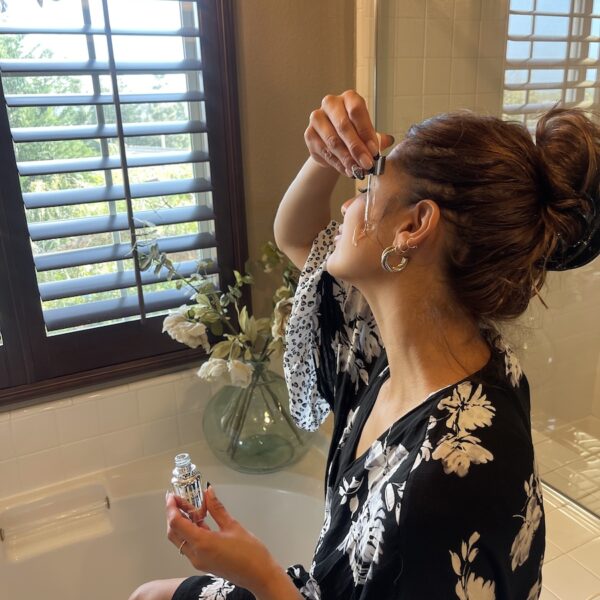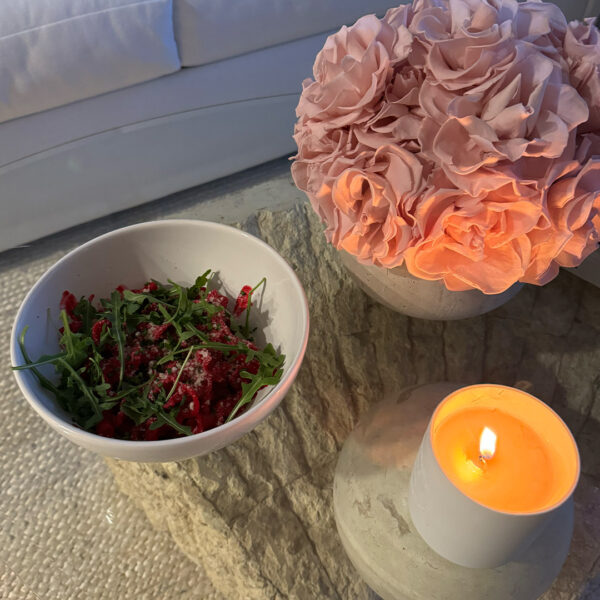Maybe making others happy makes us happy. That’s totally OK, and totally human. It’s awesome to spread loving kindness, help others when we can, and be an overall, generally nice person. But when kind deeds cross over into desperate territory, we become people-pleasers, and that doesn’t really serve anyone.
People-pleasing isn’t for the genuine good of others. It’s an attempt to never create waves, to always be agreeable, to smooth over every surface, and to protect the ego. People-pleasing does not assert what is best for ourselves, or those around us. It creates a false layer of peace and enables possibly unhealthy behavior in others.
Nedra Glover Tawwab, therapist and author of Set Boundaries, Find Peace, lays it out best when she describes people-pleasing as:
“• Allowing people who haven’t changed back into your life
• Doing for others what they could easily do for themselves (enabling)
• Going out of your way to accommodate someone
• Not asserting yourself when people are mean or disrespectful
• Remaining silent when you have an issue
• Taking the blame
• Doing what’s best for everyone except yourself”
When we let our own independent thinking, best practices, personal needs, and genuine feelings fall to the wayside to pave an easy road for those around us, it may feel like we are making things easier on ourselves. However, in reality, we are reinforcing negative behavior, setting ourselves up for repetitive patterns in the behavior we have enabled. Essentially, we are solidifying our role in life as a doormat. People will remember that about us, and most certainly take advantage of it.
Another possible perspective is that people will see us as ingenuine. If we are constantly agreeable, it’s difficult for people to determine if they can trust us, or ever really know the real us. In turn, it becomes difficult for us to truly know ourselves, our own desires, and our own opinions. So how do we break the people-pleasing pattern?
The first step is to recognize that we have a choice when we are asked for something. Do we have the time, energy, or physical resources to help this person? Do we feel this person is in genuine need, or are they trying to take advantage of us?
If we’re unsure if something is reasonable, or don’t know exactly what our own informed thoughts on the matter are, it’s OK to pause. Tell someone you need to get back to them when asked a favor, or for support about something you’re unsure of. When we allow ourselves time, we can assess our own personal values instead of hurrying to agree or comply.
Watch out for manipulation.
The last thing we want to be considered is gullible. People-pleasers may find themselves in a position of flattery. Someone may say to us, “Oh, you’re such a safe driver, would you mind being DD for our night out, or taking your car for the road trip?” We can’t let others trick us into defaulting responsibility.
Be understanding, but assertive.
It can be really hard to say no to friends, and our default mode may be to always do anything and everything for our friends, especially when they ask. That’s a lovely quality, in theory, but can result in us not taking care of ourselves both physically and emotionally. If it’s not a good time or space for us, we can make sure they feel heard and understood by telling them so, while also explaining why we can’t take on said task or favor. Good friends will support the protection of our boundaries, and respect us more for it.
Try not to over-apologize.
If you’re not in a natural position to agree with someone or do them a favor, a small apology is fine, but don’t gush. We haven’t done anything wrong, we just can’t do their bidding at this moment. That doesn’t mean we have wronged them or hurt them. We are protecting ourselves and our individuality. Let’s do so (appropriately) unapologetically.
Nedra leaves her readers with a succinct #nedranugget: “Living to make others happy often leaves you unhappy. People-pleasing is rooted in not feeling worthy of love, fearing rejection, or unhealthy self-esteem. You can be in a healthy relationship with others AND take care of yourself. Healthy people want you to be able to be happy and healthy. You are not kind to yourself when you neglect your needs for the needs of others.”
Remember that genuine love and respect start with self-love and respect. It doesn’t need to be cold or confrontational; it can be very warm and very loving. Just make sure that you are respecting your own boundaries so that others can follow suit.
Poosh Picks: 'Me' Night Essentials:
Up next, shop more from the Poosh Shop here.







































